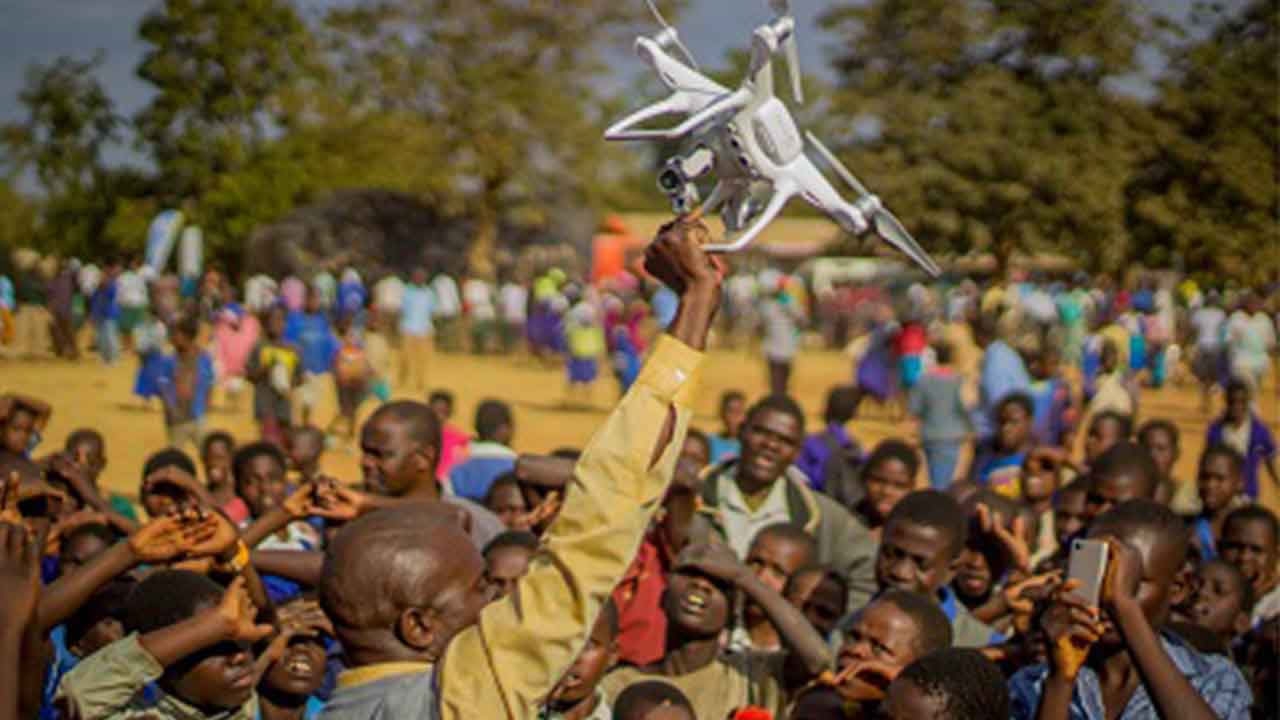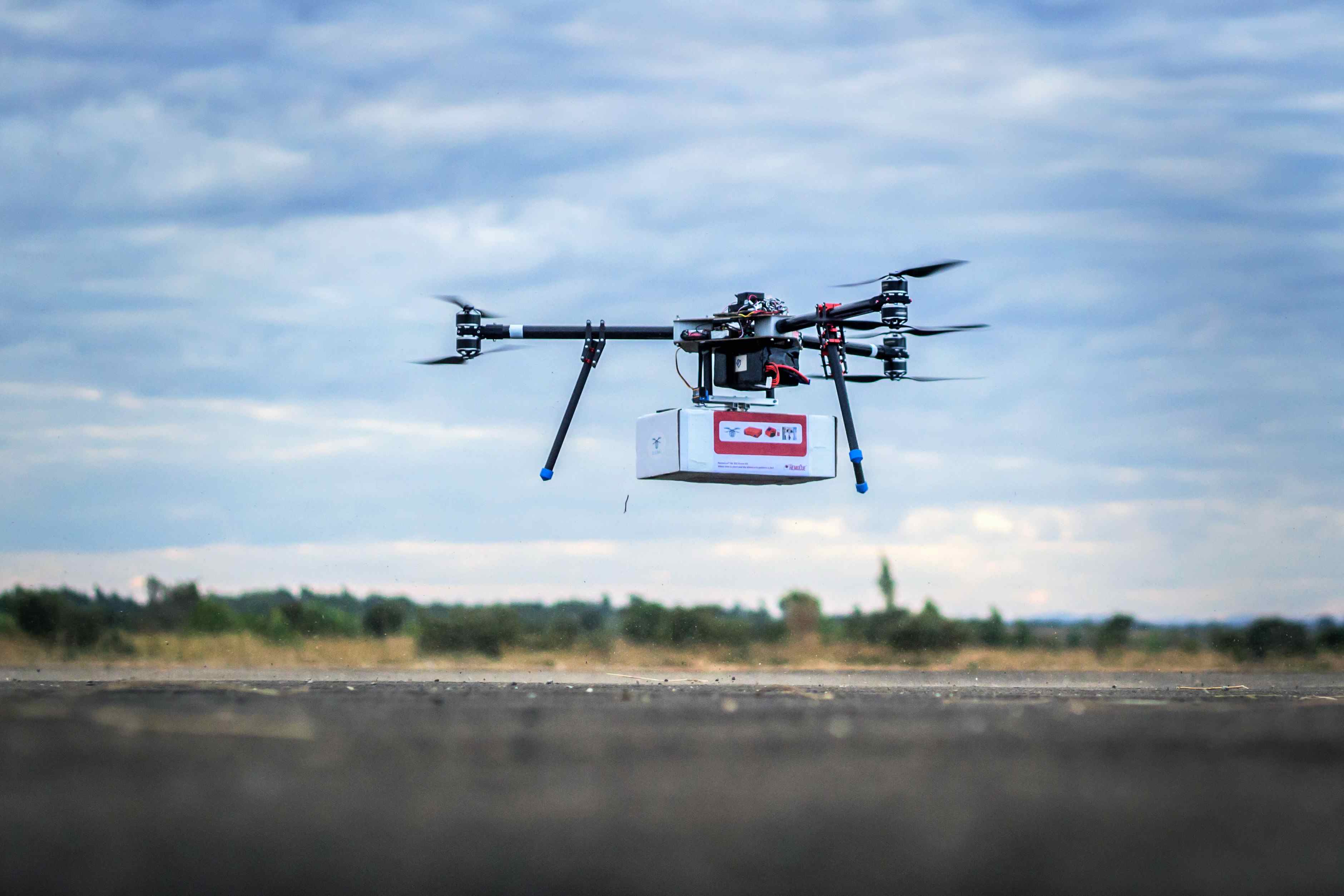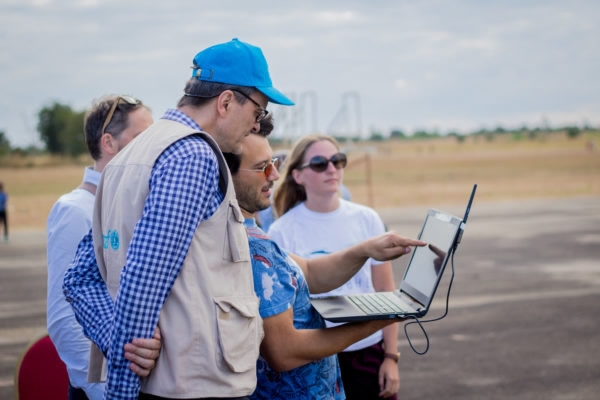
Tech & Sci
12:21, 01-Jul-2017
Drones to deliver aid, spread Wifi in Malawi air corridor experiment

By CGTN Africa
Malawi has opened a prioritized air corridor for drones, in a joint experiment with the United Nations Children’s Fund (UNICEF) to test the effectiveness of unmanned aircraft in humanitarian emergencies and development.
In what is believed to be the first of its kind in Africa, the test corridor is centered on the Kasungu Aerodrome in central Malawi, with a 40-kilometer radius. The project has three primary areas of focus: generating aerial images of crisis situations, using drones to extend Wifi or mobile phone signals across difficult terrain in emergencies, and delivering low-weight emergency supplies.

The UNICEF Office of Innovation team tests a drone carrying a cargo payload box at Kasungu Aerodrome in central Malawi. /UNICEF Picture
The UNICEF Office of Innovation team tests a drone carrying a cargo payload box at Kasungu Aerodrome in central Malawi. /UNICEF Picture
Jappie Mhango, minister of transport for Malawi, told CGTN Africa, “Apart from delivering medical samples to testing laboratories, it can also do a lot of mapping, land surveying and other important activities."
Limited road access in many of Malawi’s rural areas makes it difficult to get help to needy communities.
"You can really see what drones can do in terms of bringing medical supplies to health centers, bringing educational supplies to schools, what they can do in terms of connectivity in areas where we do not have coverage by a telecommunications network,” said Johannes Wedenig, UNICEF’s representative in Malawi.
He added that the scheme is open for private sector investment and will “put Malawi on the map."

Johannes Wedenig, UNICEF Malawi rep (left) and the UNICEF Office of Innovation team at the Kasungu Aerodrome in central Malawi. / UNICEF Picture
Johannes Wedenig, UNICEF Malawi rep (left) and the UNICEF Office of Innovation team at the Kasungu Aerodrome in central Malawi. / UNICEF Picture
Landlocked Malawi, which suffers periodic crop failures and is prone to floods, is frequently in need of food and other aid.
10354km

SITEMAP
Copyright © 2018 CGTN. Beijing ICP prepared NO.16065310-3
Copyright © 2018 CGTN. Beijing ICP prepared NO.16065310-3